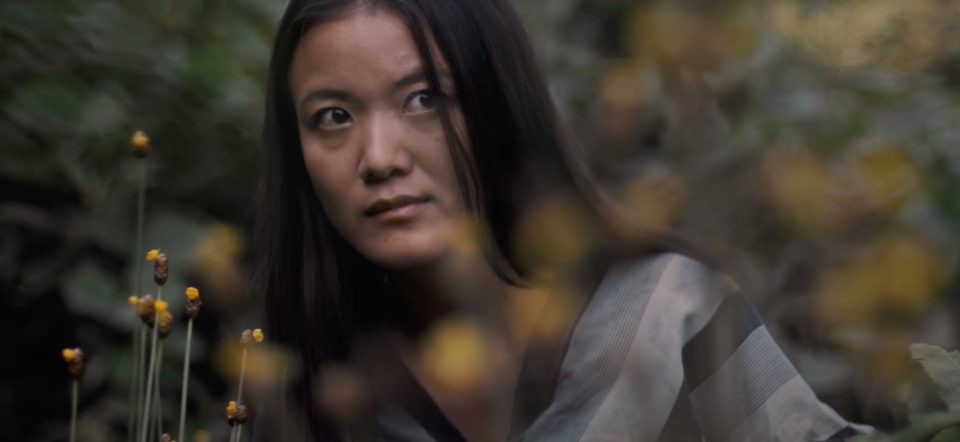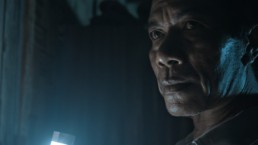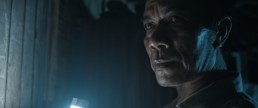A Deep Dive Into the Laos-Set Ghost Story, ‘The Long Walk’
The Long Walk strikes a sweet spot between explanation and enigma.
Laotian American director Mattie Do was already an up and coming icon in the character-driven horror world, as her acclaimed prior film, Dearest Sister, became Lao’s first submission to the Academy Awards. Do’s latest production, The Long Walk, which we caught at the excellent Brooklyn Horror Fest, cements her as a voice to follow in the genre and in general.
“Times heals all wounds.” That’s the old cliché that Do’s ghost story comes for with a knife, dismembering and examining that notion to remind us that while yes, time can heal wounds, it also can create space for them to rot.
In The Long Walk, we meet several wounded characters: a psychic man, his ghostly companion, and a young woman who seeks the psychic’s insights. Each is captivating in their own right but become more so as their attitudes towards grief clash in some very twisty and surprising scenarios. Unexpected story elements start coming early, and they don’t stop coming. Within the first minute, Do announces the unclassifiable nature of her tale, as the timeless image of a care-worn man walking along a rural road is disturbed by a futuristic jet, bursting into the sky to head towards a hazy megalopolis that rears in the distance.
Do continually injects such beguiling sci-fi elements into her mournful, Laos-set ghost story. The nature of this intermingling is best left unspoiled, but the melding makes for an ambitious and inventive tale whose ideas and images lick at your conscious. Nothing can prepare you for the fearsome, moving, and unexpected roads this story travels.
The basic premise is this: A Laotian man goes through his life with the ability to communicate with ghosts, beginning with his childhood discovery of a fatally injured young woman in the forest. As a boy, he connects with her ghost, and they become a strange sort of companion. Not long after, the boy loses his mother to a wasting illness, a blow which initiates his gradual withdrawal into a more and more isolated and bitter existence. However, his hermetic world is punctured by a young city-dwelling woman who knows his reputation. (He makes no effort to hide his daily chats with ghosts, a habit which marks him a person of interest in the town, though not a particularly approachable one). The young woman hopes his ability can bring her some peace regarding the likely death of her mother, who disappeared from their village while she was away in the city. However, she doesn’t realize how her story triggers the man to reflect on his painful history and downward spiral. Her experience reminds him sharply of how his father went to seek his fortune in the city while abandoning his ill wife and young son.

The story is slow-moving in a plot sense, as it covers mere days in the life of the man and woman and relies heavily on flashbacks. However, Do has a great understanding of how core tensions between characters can fill an audience member’s mind with motion even in the “slow” moments of a story. Many scenes are alive with questions like, “How will the man will act on his conflicted impulses of hate and sympathy towards the young woman? Will he help her, or will he twist the knife of her guilt as he sometimes believes she deserves?”
These simmering dynamics make this film an acting and directorial showcase with Yannawoutthi Chanthalungsy giving a captivating lead performance that walks the knife’s edge between tender and unsettling as his character wrestles with his tangled past. Vilouna Phetmany and Noutnapha Soydara meanwhile, also shoulder a massive portion of the narrative as they play the living woman and the murdered girl who complete the central trio. Both have experience as performers and dancers (Phetmany is also a pop musician while Soydara has a background in classical dance and hip hop). This expertise in physically communicating emotion is well-suited to Do’s material, which is sometimes light on dialogue and heavy on thoughtful gazes.
If you’ve read this far, you’ll probably have surmised that The Long Walk isn’t an easy sell for just any audience. It is fairly long and remarkably weird, yet I remain convinced it would be something of a crowd-pleaser for adventurous viewers. Unlike High Life (2019) or Suspiria (2018) – genre arthouse projects that, love them or hate them, objectively divided audiences with their high-key elusive and ambiguous tendencies – The Long Walk is more forthcoming about how its imaginative elements relate to the aching emotions and violent impulses of its characters.
While experimental genre works often leave some hopelessly enamored and others impossibly fuzzy on the events and emotions portrayed, The Long Walk strikes a sweet spot between explanation and enigma. This sweet spot doesn’t make it superior or inferior to slipperier fare like Suspiria, but Do’s work could prove more accessible than either Denis or Guadagnino’s latest if it were afforded anything like the release platform those films had. Cinemacy will cheer on whichever distributor eventually jumps in for the US rollout; The Long Walk is recommended viewing for to those who long for strange, surreal genre fare that provides enough clarity, intrigue, emotional rawness to satisfy while also containing mysteries and moral dilemmas that invite re-watch.
THE LONG WALK (2019)
Starring Yannawoutthi Chanthalungsy, Vilouna Phetmany, Por Silatsa
Directed by Mattie Do
Written by Christopher Larsen
Currently playing the global festival circuit and seeking distribution. 116 minutes.
A conventional trailer is not yet available but a stunning Cinematography montage can be found here, along with an interview with cinematographer Matthew Macar.
Kailee Andrews
Kailee holds a Communication Arts B.A. from the University of Wisconsin. At 21, she programmed her first film festival for an audience of 4,000+ on campus. Since then, it's been all about sharing the cool arts and crafts of cinema.


